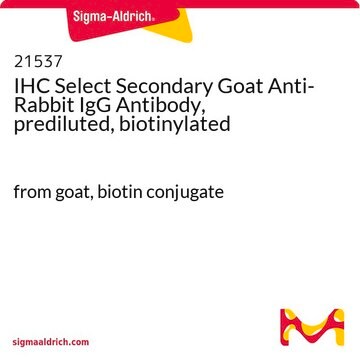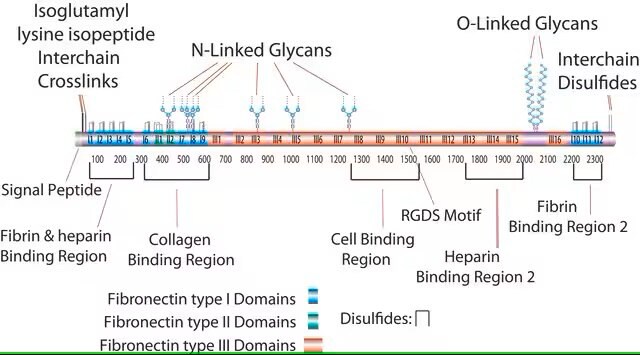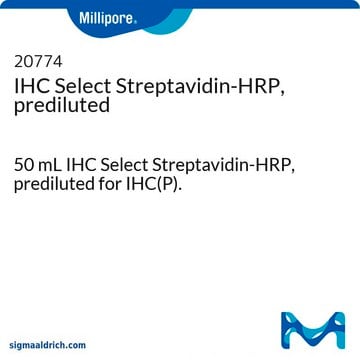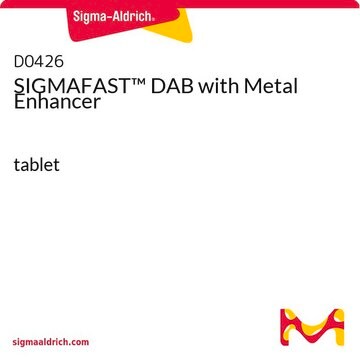20775
IHC Select Secondary Goat anti-Mouse IgG, anti-Rabbit IgG, biotinylated
from goat
Sign Into View Organizational & Contract Pricing
All Photos(1)
About This Item
UNSPSC Code:
41116012
eCl@ss:
32160405
Recommended Products
biological source
goat
Quality Level
antibody form
purified antibody
antibody product type
secondary antibodies
species reactivity
mouse, rabbit
manufacturer/tradename
Chemicon®
IHC Select
technique(s)
immunohistochemistry: suitable (paraffin)
shipped in
wet ice
target post-translational modification
unmodified
Application
Prediluted for use in Immunohistochemical staining procedures. For example:
Blocking Reagent
Primary Antibody (Mouse IgG or Rabbit IgG) or Negative Control Reagent
Biotinylated Secondary Antibody
Streptavidin-Enzyme Conjugate
Chromogen
Counterstain
For best results use this reagent in conjunction with other IHC Select detection reagents. A complete list of reagents is available at www.chemicon.com.
Blocking Reagent
Primary Antibody (Mouse IgG or Rabbit IgG) or Negative Control Reagent
Biotinylated Secondary Antibody
Streptavidin-Enzyme Conjugate
Chromogen
Counterstain
For best results use this reagent in conjunction with other IHC Select detection reagents. A complete list of reagents is available at www.chemicon.com.
Research Category
Secondary & Control Antibodies
Secondary & Control Antibodies
Research Sub Category
Whole Immunoglobulin Secondary Antibodies
Whole Immunoglobulin Secondary Antibodies
Physical form
Format: Purified
Secondary antibody cocktail containing both Goat Anti-Mouse IgG and Goat Anti-Rabbit IgG, in PBS containing carrier protein, with 0.1% ProClin 300 as preservative.
Storage and Stability
When stored at 2-8°C, this reagent is stable up to the expiration date printed on the label. Do not freeze or expose to elevated temperatures.
Legal Information
CHEMICON is a registered trademark of Merck KGaA, Darmstadt, Germany
Disclaimer
Unless otherwise stated in our catalog or other company documentation accompanying the product(s), our products are intended for research use only and are not to be used for any other purpose, which includes but is not limited to, unauthorized commercial uses, in vitro diagnostic uses, ex vivo or in vivo therapeutic uses or any type of consumption or application to humans or animals.
Not finding the right product?
Try our Product Selector Tool.
Signal Word
Warning
Hazard Statements
Precautionary Statements
Hazard Classifications
Aquatic Chronic 3 - Skin Sens. 1
Storage Class Code
12 - Non Combustible Liquids
WGK
WGK 2
Flash Point(F)
Not applicable
Flash Point(C)
Not applicable
Certificates of Analysis (COA)
Search for Certificates of Analysis (COA) by entering the products Lot/Batch Number. Lot and Batch Numbers can be found on a product’s label following the words ‘Lot’ or ‘Batch’.
Already Own This Product?
Find documentation for the products that you have recently purchased in the Document Library.
Teratoma in the cerebrum of a fantail pigeon.
Celia C Hooper
Avian Pathology : Journal of the W.V.P.A null
Li-Wei Dong et al.
Autophagy, 7(10), 1222-1229 (2011-06-10)
Autophagy enables cells to recycle long-lived proteins or damaged organelles. Beclin 1 plays important roles in autophagy, differentiation, apoptosis and the development and progression of cancer, but the expression of Beclin 1 and its possible role in primary intrahepatic cholangiocarcinoma
Panagiotis Sarantis et al.
International journal of molecular sciences, 22(13) (2021-07-03)
Pancreatic Cancer (PC) is recognized as a highly thrombogenic tumor; thus, low-molecular-weight heparin (LMWH) such as tinzaparin is routinely used for PC patients. On the basis of combinatorial therapy approaches to treat highly malignant and refractory cancers such as PC
Di Wang et al.
EBioMedicine, 85, 104278-104278 (2022-10-07)
To determine whether SIRPα can be a diagnostic marker of pulmonary tuberculosis (PTB) and the molecular mechanism of SIRPα regulating macrophages to kill Mycobacterium tuberculosis (MTB). Meta-analysis combined with subsequent qRT-PCR, western-blotting and flow cytometry assay were used to detect
Xueqiang Wei et al.
Translational cancer research, 9(12), 7394-7404 (2020-12-01)
Lung cancer represents the most leading causes of cancer-related deaths worldwide, especially in Xuanwei in eastern Yunnan province, China. WD repeat and SOCS box containing protein (WSB) has been reported to participate in the carcinogenesis of lung cancer. However, there
Our team of scientists has experience in all areas of research including Life Science, Material Science, Chemical Synthesis, Chromatography, Analytical and many others.
Contact Technical Service









